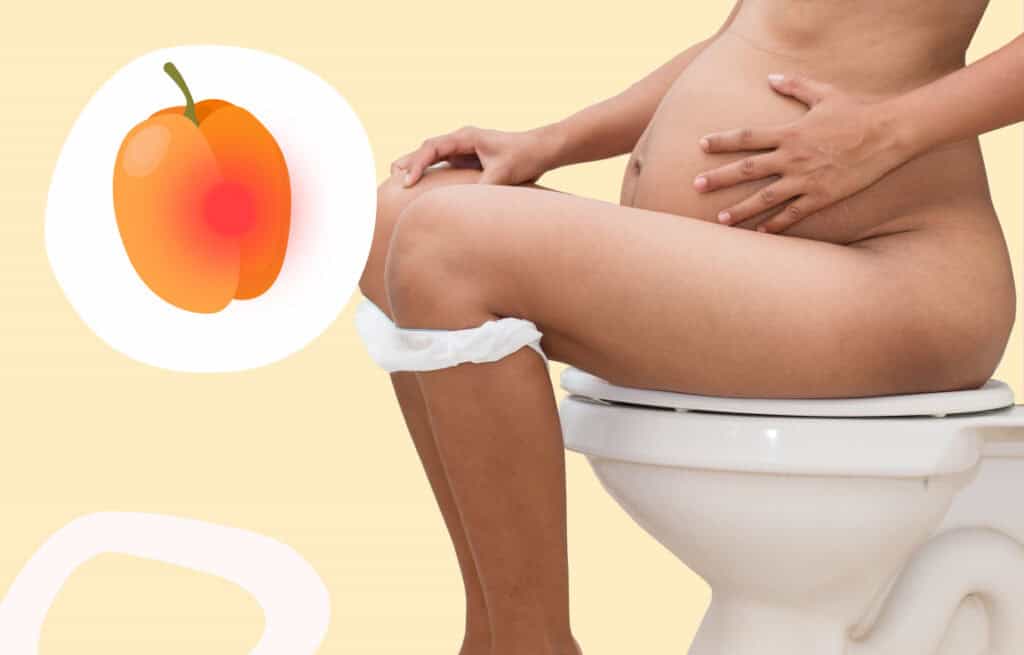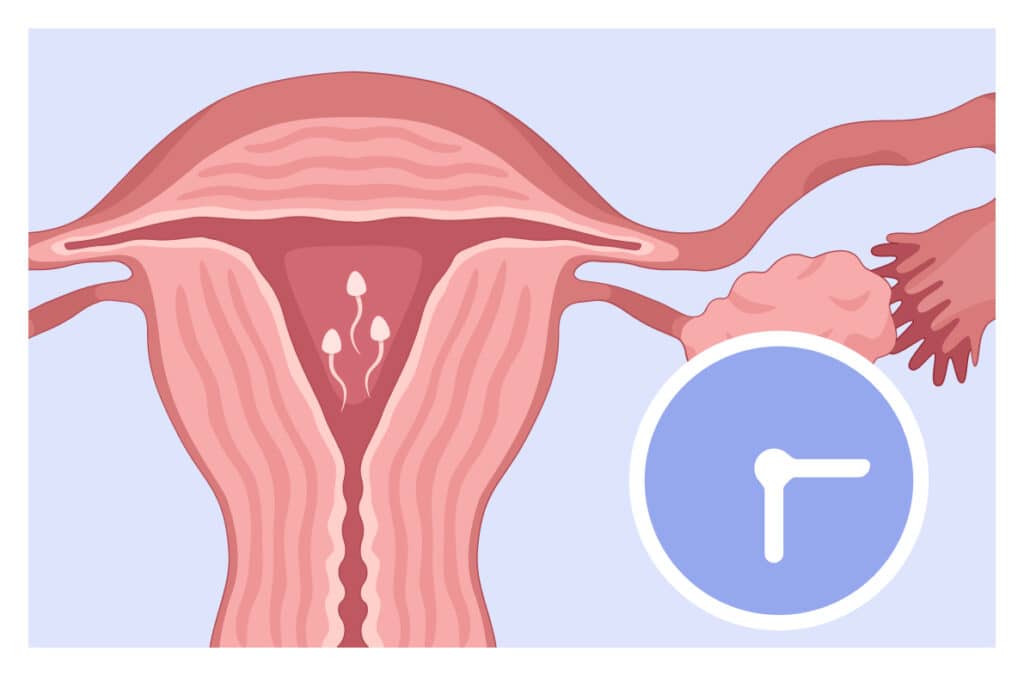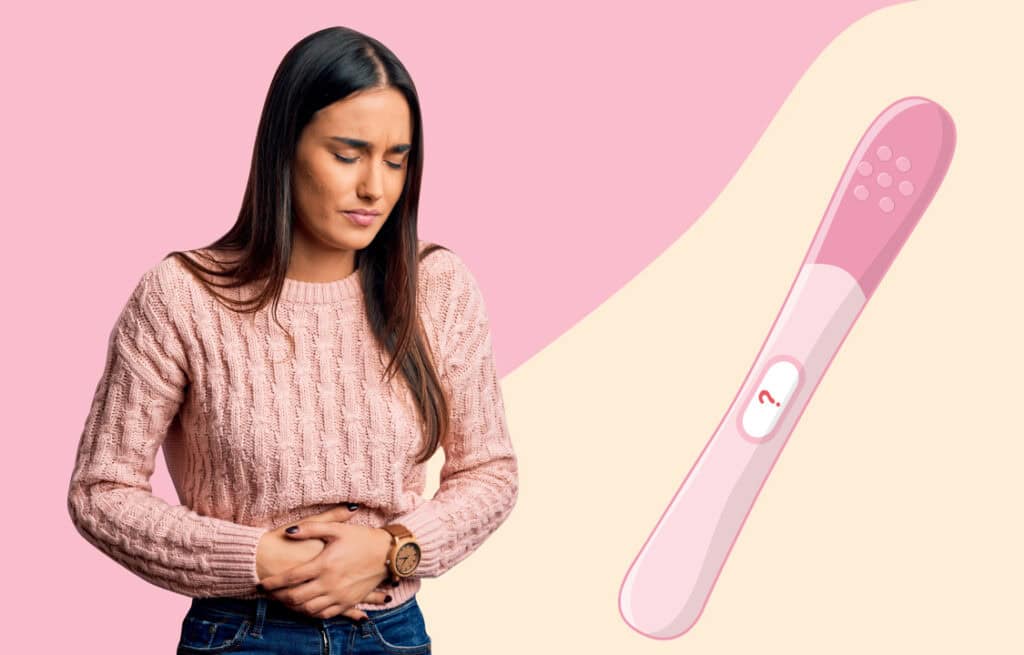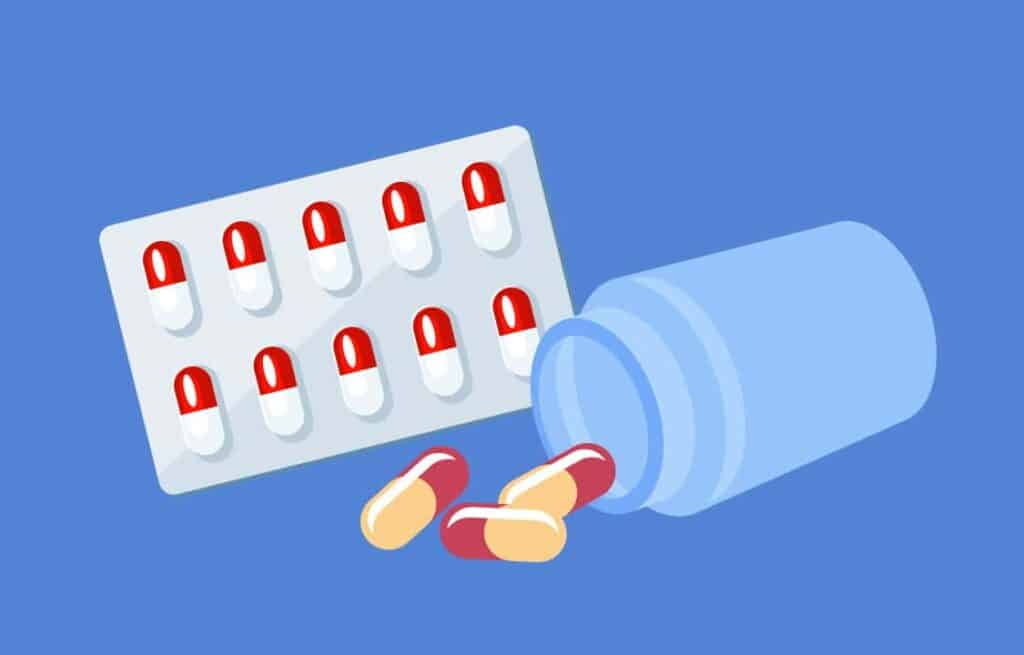Femia > Health Library > Pregnancy > Pregnancy health > Pregnancy hemorrhoids: Causes, prevention, and how to get relief
Pregnancy hemorrhoids: Causes, prevention, and how to get relief

- Updated Feb 10, 2025
- Published
CRAFTED BY HUMAN
Crafted by human At Femia, we provide accurate and up-to-date information at every stage of your journey, from trying to conceive, pregnancy and postnatal support. All content is created by a real person based on in-depth research and own professional experience. Femia ensures that you will receive expert advice, strict accuracy and a personalized approach from our authors/medical experts. Learn more about our editorial policy.
FACT CHECKED
Fact checked At Femia Health, we maintain the highest standards of editorial excellence in delivering content focused on helping you conceive, guiding you through pregnancy, and supporting you postpartum. Explore our content review principles to learn how we ensure the accuracy and quality of our health and lifestyle tips for every stage of your journey.
Pregnancy hemorrhoids are swollen, enlarged veins inside or outside your anal area that are common in the second and third trimesters of pregnancy. Hemorrhoids during pregnancy occur due to hormonal changes in the body and increased pressure on the pelvic area because of the baby’s weight and your growing uterus.
Using over-the-counter hydrocortisone ointments, applying warm compresses or ice packs, taking warm water or sitz baths (a warm, shallow bath that soothes the genital and rectal areas), keeping yourself hydrated, and eating fibrous foods can help relieve hemorrhoids during pregnancy. It is crucial to consult your doctor if you experience severe and persistent pain, pus, fever, or bleeding hemorrhoids during pregnancy that don’t resolve with home remedies or topical medications.
Hemorrhoids, also known as piles, are a condition that causes swollen veins around the lowest part of the rectum and anus. It is a common yet uncomfortable symptom in pregnancy that typically occurs in the third trimester due to hormonal changes and increased intra-abdominal pressure.
Hemorrhoids are a temporary symptom that completely resolves after pregnancy, but you can use topical medications, warm compresses, and other natural remedies to relax and soothe the area in the meantime. Let’s discuss pregnancy hemorrhoids in detail.
Our pregnancy symptoms tracking app helps you log
and monitor unusual changes
What are hemorrhoids, and why are they common in pregnancy?
Hemorrhoids are a condition that causes enlarged, swollen veins inside or outside your anus and rectum. There are two main types of hemorrhoids:
- Internal hemorrhoids commonly occur inside the rectum.
- External hemorrhoids occur under the skin around your anus.
Hemorrhoids typically occur because of extra pressure on the veins of your anus or rectum. So, are hemorrhoids common in pregnancy? It is estimated that around 25–35% of women are affected by hemorrhoids while pregnant due to:
- Increased pressure on the pelvic area because of the baby’s and mother’s weight.
- Constipation.
- Hormonal changes in the body.
👉Find out more: 10 weird pregnancy symptoms you didn’t know existed
What causes hemorrhoids during pregnancy?
Pregnancy hemorrhoids can occur because of the following reasons:
1. Growing uterus and pressure on the pelvis
As your pregnancy progresses, your uterus continues growing to accommodate your baby. The growth of the uterus can put pressure on your pelvic area, which can cause swollen, enlarged veins around the anus or rectum.
2. Release of progesterone
During pregnancy, your body continues to produce progesterone, a hormone that supports the growth of the uterine lining and prevents uterine contractions.
Progesterone also relaxes the intestine, which slows digestion and can result in constipation. Constipation can put pressure on your anus and cause swollen veins and pain around the anus.
3. Weight gain
Pregnancy can increase your weight due to hormonal changes, the weight of the baby, and increased appetite because of food cravings.
So, weight gain also contributes to increased pressure on the abdomen and pelvic area, which can cause swelling around the anus or rectum, leading to hemorrhoids.
You can use our pregnancy weight gain calculator to track your weight throughout pregnancy and find out whether your weight gain is within the recommended range based on guidelines from the Institute of Medicine.
4. Increased blood flow to the pelvic area
During pregnancy, the blood flow to the pelvic area increases to support and nourish the growing fetus and placenta, which enlarges the veins around the anus and can cause it to swell.
Symptoms of pregnancy hemorrhoids
The common symptoms of hemorrhoids during pregnancy include:
- Swelling, itching, or soreness around the anus,
- Bright red blood (bleeding) during or after passing stool,
- Pain while pooping,
- A lump hanging around the anus,
- Mucus discharge after pooping.
Other uncomfortable signs of hemorrhoids during pregnancy include third-trimester nausea, extreme fatigue or fatigue peak, and pregnancy nose.
The fastest way to get rid of hemorrhoids during pregnancy
The fastest way to get rid of hemorrhoids during pregnancy is to take measures to soothe your inflammation, particularly with ointments and massages. The complete healing of pregnancy hemorrhoids usually occurs after your baby is born and the pressure on your abdomen and anus is released.
Here are a few quick relief tips for hemorrhoids during pregnancy:
- After consulting with your healthcare provider, you can use hydrocortisone ointments, creams, suppositories, or sprays—like anugesic-HC, xyloproct, or proctosedyl—for hemorrhage and itchy bottom.
- Apply ice packs or warm compresses up to four times a day to soothe the swollen and aching area around your anus.
- Massage your anal area with olive oil, whichpossesses anti-inflammatory properties.
- Take a sitz bath or warm water bath by sitting in your bathtub with a bag filled with slightly warm water covering your hips and buttocks to relax the area and reduce discomfort.
How to treat hemorrhoids during pregnancy
You can treat or reduce the discomfort and pain of hemorrhoids during pregnancy with the following measures:
1. Medications
Medications help reduce pain and inflammation in hemorrhoids. However, it is best to ask your healthcare provider before using any medicine, as they can better guide you based on your condition.
Topical hydrocortisone creams, laxatives, or a fiber supplement may be suggested to ease pain and swelling or constipation from hemorrhoids. Paracetamol is also a safe drug during pregnancy that helps with pain relief.
Witch hazel, a topical astringent medicine available as wipes or pads, can help relieve pain and inflammation in the rectal area from hemorrhoids.
2. Exercise
Gentle exercises, like walking, swimming, and yoga, as well as pelvic floor exercises, like Kegels, help improve blood circulation and relax the muscles of the lower body, relieving pain and discomfort in the anus.
- Begin with short walks for 10–15 minutes daily, and gradually increase the time and intensity of walks according to your comfort.
- Engage in kegel exercises 3–4 times daily, three sets of 10–15 repetitions.
- Practice deep breathing for 5–10 minutes, 2–3 times daily.
- Engage in prenatal yoga 2–3 times weekly for 20–30 minutes.
While engaging in any exercises, it is crucial to listen to your body, avoid overexertion, and stop whenever you feel any pain or discomfort.
3. Diet
Consuming a fibrous diet and ensuring sufficient hydration—up to 10 glasses of water daily—is important to soften your stool, making it easier to pass and easing hemorrhoid inflammation.
The National Academy of Medicine suggests taking at least 25 grams of fiber per day for women aged 50 years and younger. Fiber-rich foods include oats, beans, peas, avocados, barley, citrus fruits, apples, and bananas.
Moreover, the following foods are not recommended for women experiencing hemorrhoids, as they have less fiber content, which can slow down digestion, make stools harder and cause constipation:
- Fried and fatty foods.
- Processed foods cooked in hydrogenated oils, like margarine, packaged snacks, coffee creamer, baked foods, and ready-to-use dough.
- Fatty cuts of meat, like bacon, pork chops, chicken thighs, ribeye, strip steak, pork belly, or others.
- Greasy snacks, like french fries, chips, or others.
- Foods high in caffeine, like chocolate, coffee, and cola soda.
- Alcoholic beverages.
- Dairy products that are high in fat, like whole milk, yellow cheese, and whole-fat yogurt.
- Foods high in refined carbohydrates, like white rice, white bread, pizza, white pasta, and tapioca.
👉Find out more: Postpartum hemorrhoids: Causes, treatment, and tips for healing after childbirth
How to prevent hemorrhoids during pregnancy
Hemorrhoid prevention during pregnancy involves following a combination of dietary and lifestyle modifications, like:
- Eating a high-fiber diet, including plenty of fruits, vegetables, and whole grains. Avoid fast foods, fried foods, caffeine, alcohol, and foods containing white flour.
- Drink at least 10 glasses of water to stay hydrated.
- Engaging in gentle exercises, like walking, yoga, and Kegels, to improve blood circulation to the anus and rectum and ease the passage of stool.
- Avoid straining during bowel movements, and use a stool to elevate your feet.
Hemorrhoids in different pregnancy stages
Hemorrhoids typically occur in the third trimester of pregnancy. However, due to hormonal changes and constipation, they can begin from the start of pregnancy and peak in the last stages due to maximum pressure from the baby.
The three stages of pregnancy hemorrhoids include:
First trimester
You may experience sharp pain in the anus during pregnancy’s first trimester or rectal pressure in early pregnancy as the hormone progesterone continues to increase to support the growing fetus. Progesterone may slow digestion, which can cause constipation and sharp pain while passing stool.
Second trimester
Anus pain during pregnancy’s second trimester often increases compared to the first trimester, as the growing uterus puts more pressure and strain on the anus, causing pain and leading to the formation of hemorrhoids.
Third trimester
The baby’s and mother’s weight reaches its peak by the third trimester of pregnancy, which creates maximum pressure on the anus and rectum, causing hemorrhoids to become more pronounced and painful than the first and second trimesters.
Do hemorrhoids go away after pregnancy?
So, do hemorrhoids go away after pregnancy? Yes, hemorrhoids resolve on their own within one to two weeks of giving birth. However, there is no specific time when they go away after pregnancy.
If your hemorrhoids were severe, they may take more than a few days to heal; otherwise, they usually resolve within two weeks or earlier after pregnancy.
To make your hemorrhoids heal faster after pregnancy, it is essential to follow postpartum aftercare:
- Keep yourself hydrated. Drink at least 8–10 glasses of water per day. It will soften your stool and allow it to pass easily without putting pressure on your anus.
- Eat high-fiber foods like oats, brown rice, apples, black beans, barley, nuts and seeds, vegetables, flax seeds, and others.
- Continue taking warm water or sitz baths.
- Keep applying ointments to soothe hemorrhoid inflammation.
When to see a doctor
You should visit a doctor if:
- You experience severe and persistent pain around your anal area, and home remedies or topical medications are ineffective in reducing the pain and inflammation.
- You are having a fever or chills with hemorrhoids.
- You experience severe or recurring bleeding with hemorrhage that doesn’t stop or reduce.
- Pus is coming out of your hemorrhoid.
Our pregnancy symptoms tracking app helps you log
and monitor unusual changes
Questions from the Femia community
Can hemorrhoids harm my baby during pregnancy?
No, hemorrhoids won't harm your baby. They arise due to pressure buildup on your anus because of the baby's weight but don't pose any health risk to your baby.
Is it normal to have bleeding hemorrhoids during pregnancy?
Yes, slight bleeding is a normal sign of hemorrhoids, but if the bleeding becomes severe and persistent, make sure to consult your doctor. Severe bleeding can indicate ruptured hemorrhoids, which can cause complications, so it is crucial to consult your doctor for emergency care.
Can I use over-the-counter hemorrhoid creams while pregnant?
Yes, you can use over-the-counter hemorrhoid cream while pregnant. But, you will need to ensure that they are pregnancy-safe by asking your healthcare provider. Common pregnancy-safe hemorrhoid creams and ointments are hydrocortisone creams and Germoloids.
Are hemorrhoids a sign of preterm labor?
No, hemorrhoids are not a sign of preterm birth. They are just an uncomfortable symptom of the later stages of pregnancy that resolve after giving birth.
The bottom line
Pregnancy hemorrhoids are a common yet treatable symptom that occurs in the later (or early) stages of pregnancy. They occur due to increased pressure on the rectum and anus because of the growing uterus and weight of the baby and mother.
Hemorrhoids during pregnancy can be reduced with home remedies, like taking warm water baths, ensuring sufficient hydration, eating a well-balanced fibrous diet, and applying safe, over-the-counter topical medications.
However, it is crucial to monitor alarming symptoms and consult your doctor if you experience signs like intense and persistent pain, severe bleeding or pus, fever or chills, or other signs of infection. Hemorrhoids typically resolve one to two weeks after pregnancy.
References
- “Hemorrhoids.” Johns Hopkins Medicine, www.hopkinsmedicine.org/health/conditions-and-diseases/hemorrhoids.
- “Piles in Pregnancy.” NHS.uk, 14 Nov. 2024, www.nhs.uk/pregnancy/related-conditions/common-symptoms/piles.
- Staroselsky, Arthur, et al. Hemorrhoids in Pregnancy. 1 Feb. 2008, pmc.ncbi.nlm.nih.gov/articles/PMC2278306.
- “Pregnancy Constipation.” Cleveland Clinic, 1 May 2024, my.clevelandclinic.org/health/diseases/21895-pregnancy-constipation.
- “Pregnancy, Breastfeeding and Fertility While Using Hydrocortisone for Piles and Itchy Bottom.” NHS.uk, 26 Nov. 2024, www.nhs.uk/medicines/hydrocortisone-for-piles-and-itchy-bottom/pregnancy-breastfeeding-and-fertility-while-using-hydrocortisone-for-piles-and-itchy-bottom.
- “Witch Hazel Wipes.” Cleveland Clinic, 1 May 2024, my.clevelandclinic.org/health/drugs/18640-witch-hazel-wipes.
- McKeown, Nicola M., et al. “Fibre Intake for Optimal Health: How Can Healthcare Professionals Support People to Reach Dietary Recommendations?” BMJ, July 2022, p. e054370, https://doi.org/10.1136/bmj-2020-054370.

If you’re wondering “How long does sperm stay inside a woman?” this article will answer your questions and explain what factors help sperm survive longer.

Learn to detect ovulation pain as a sign of your fertile window to increase your chances of pregnancy success.

What is ureaplasma? Discover the symptoms of Ureaplasma in females, how it is diagnosed, and the treatments. Learn how this infection can impact fertility and well-being.

